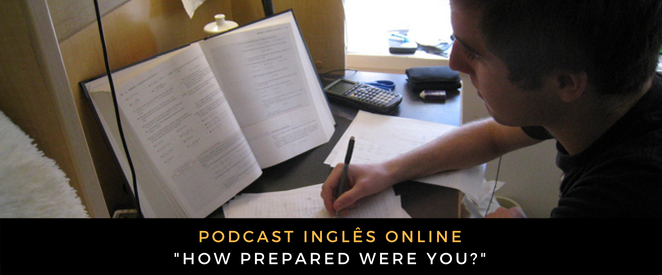I’m very fluent in Portuguese, because I’m a native, I’m from Brazil!
I loved your blog! First time here and I feel that is not be the first. Thanks!
Hi Ana,
I very fluent In Portuguese because i am a native speaker. However i am not In English. Then, i like listem your podcasts because this: i learn so much!
Hi Ana very good pod cast I enjoied one more time it is improving my english
thks a lot
Very good the post. I think that with u posts we will get the best of english: the people speaking. Kisses 2 you Ana and good luck 4 the english language students!
Now says: my written english is good? is getting better?
If am i fluent in portuguese? I guess so. hahaha Im a native portuguese speaker. I just need to catch up with the new spelling agreement which is driving me crazzzy hahaha But i think im not the only one.
Rafael and Roberto – like we need to know grammar rules to be fluent! Grammar can be a supporting tool, but that’s it…
João Geraldo – vá na barra lateral e clique em “Como Ter Progresso na Fluência”
Adir, Diogo, Nivaldo, Marilene – thanks for your comments!! And stick around (fiquem por aqui) for more podcasts.
HI Ana,
Thanks a lot for this Podcast, it has helped me a lot.
I´m very happy becase I can understand you very well; you are vey competent, congratulations.
Hi, Ana Luiza
I’m very,very fluent in portuguese. I’m not so fluent in english but I think I’m getting better and better.
hey Ana, how is it going?
Good podcast, I loved it! So, I’m sure I’m fluent and Portuguese, with a mix of accents from Sao Paulo, Belém and some from Portugal! hehe.. but it doesn’t matter. Like Rafael, I’m not the best guy in grammar, but I know how to speak properly.
Thanks for one more podcast and I’m looking forward to the next one!
Bye and all the best!
My last exam that I done it was at 2009 and I was the first in it, for this I won a post graduate in my ex college. I’m not sure if I was very prepared, but I alwasy stutied very much when I was studying and the result it was great, very rewarding. Thanks for more this podcast.
Oi, Ana, bom dia, gostaria de perguntar, porque que a gente ouvindo o idioma inglês, conseguimos entender somente algumas coisas ? e se p/ aprender inglês fluentemente, primeiro precisamos aprender a gramática do idioma ? verbos, etc….
aguardo resposta.
Hi, Ana! Thanks a lot for the podcast.
I am fluent in Portuguese, but I don’t know ALL the grammar rules. So, on a “1 to 10” scale, I think I’m a 9.
Last time I took an exam I was very well prepared, otherwise my advisor would’ve killed me!
Great podcast, Ana!


